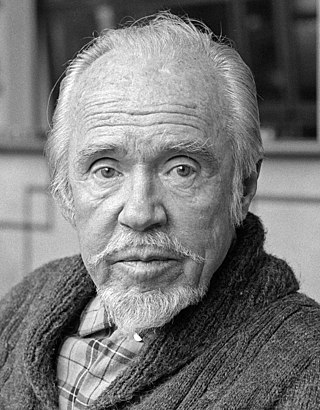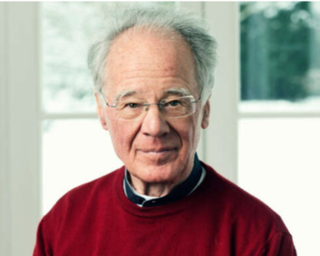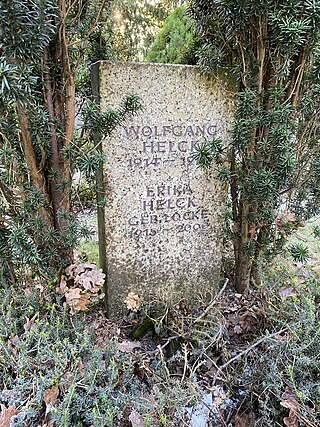Wolfgang Heisig (born in 1952) is a German pianist and composer who is known for his contemporary application of piano rolls.
Wolfgang Heisig (born in 1952) is a German pianist and composer who is known for his contemporary application of piano rolls.
Born in Zwickau, Heisig studied piano and composition at the Hochschule für Musik Carl Maria von Weber in Dresden between 1972 and 1978. Since 1980 he has composed short aphoristic piano pieces, which form the collection Klaviertöne. He also worked for the Duo Sonnenschirm , on whose debut album he participated in 1989. Furthermore, he was involved in the composition of the film music for the feature film Der Junge mit dem großen schwarzen Hund .
Since 1990, Heisig has been intensively engaged with the music of the composer Conlon Nancarrow, who often punched his compositions into paper rolls that were played with player pianos. Since Nancarrow was hardly interested in the duplication and distribution of these rolls, Heisig not only acquired a Phonola to interpret the works through nuanced pedalling and actuation of dynamic and tempo levers. He also had a PC-controlled punching machine built to produce and perform Nancarrow's compositions on a music roll. In the meantime, this has resulted in the world's only music roll edition of Nancarrow's works.
Heisig also duplicates his own compositions with the roll technique. In his concerts he interprets Nancarrow as well as his own and other contemporary works. In 2011 he published an album with contemporary phonola music with the Musikproduktion Dabringhaus und Grimm; he also wrote a volume of poetry which was published by Frankfurter Verlagsgruppe in 2018. With Michael Wollny, Émile Parisien, Max Stadtfeld and Leafcutter John, he played at the ceremony "100 Years Bauhaus" at the Academy of Arts, Berlin. In 2007 Heisig received the Gellert Prize .

Samuel Conlon Nancarrow was an American-Mexican composer who lived and worked in Mexico for most of his life. Nancarrow is best remembered for his Studies for Player Piano, being one of the first composers to use auto-playing musical instruments, realizing their potential to play far beyond human performance ability. He lived most of his life in relative isolation and did not become widely known until the 1980s.
Max Rostal was a violinist and a viola player. He was Austrian-born, but later took British citizenship.
Cristóbal Halffter Jiménez-Encina was a Spanish classical composer. He was the nephew of two other composers, Rodolfo and Ernesto Halffter and is regarded as the most important Spanish composer of the generation of composers designated the Generación del 51.

Aribert Reimann was a German composer, pianist, and accompanist, known especially for his literary operas. His version of Shakespeare's King Lear, the opera Lear, was written at the suggestion of Dietrich Fischer-Dieskau, who performed the title role. His opera Medea after Grillparzer's play premiered in 2010 at the Vienna State Opera. He was a professor of contemporary Lied in Hamburg and Berlin. In 2011, he was awarded the Ernst von Siemens Music Prize for his life's work.

Darmstädter Ferienkurse is a regular summer event of contemporary classical music in Darmstadt, Hesse, Germany. It was founded in 1946, under the name "Ferienkurse für Internationale Neue Musik Darmstadt", as a gathering with lectures and concerts over several summer weeks. Composers, performers, theorists and philosophers of contemporary music met first annually until 1970, and then biennially. The event was organised by the Kranichsteiner Musikinstitut, which was renamed Internationales Musikinstitut Darmstadt (IMD). It is regarded as a leading international forum of contemporary and experimental music with a focus on composition. The festival awards the Kranichsteiner Musikpreis for performers and young composers.
Nicolaus A. Huber is a German composer.
WERGO is a German record label focusing on contemporary classical music. It was founded in 1962 by German art historian and music publisher Werner Goldschmidt (1903–1975) and the musicologist Helmut Kirchmeyer. Their first release, filed under "WER 60001", was Schoenberg's Pierrot lunaire, conducted by Pierre Boulez. The record company is owned by Schott Music, both based in Mainz, Germany.

George Alexander Albrecht was a German conductor and composer, who also worked as a musicologist and academic teacher. A prolific composer at a young age, he was Generalmusikdirektor (GMD) of the Staatsoper Hannover from 1965 for 30 years, where he led not only the major operas by Mozart and stageworks by Wagner, but contemporary composers, such as Aribert Reimann's Troades in 1987. He was GMD of the Nationaltheater Weimar from 1996, and taught at the Hochschule für Musik Franz Liszt, Weimar. Albrecht promoted the works of neglected composers such as Wilhelm Furtwängler, Hans Pfitzner, and Erwin Schulhoff.

Hans Wolfgang Helck was a German Egyptologist, considered one of the most important Egyptologists of the 20th century. From 1956 until his retirement in 1979 he was a professor at the University of Hamburg. He remained active after his retirement and together with Wolfhart Westendorf published the German Lexikon der Ägyptologie, completed in 1992. He published many books and articles on the history of Egyptian and Near Eastern culture. He was a member of the German Archaeological Institute and a corresponding member of the Göttingen Academy of Sciences.

Helmut Franz Maria Kirchmeyer is a German musicologist, philologist and historian.

Iris ter Schiphorst is a German composer and musician.
Michael Custodis is a German musicologist, sociologist and university lecturer at the Westfälische Wilhelms-Universität in Münster.
Hans-Joachim Hinrichsen has been holding the chair for musicology at the University of Zurich since 1999.
Helmuth Osthoff was a German musicologist and composer. Much of his career was spent at Frankfurt University, prior to which he held posts at Halle University and Berlin University. He wrote the first major biography on the composer Josquin des Prez, published as a two volume monograph in 1962 and 1965

Wolfgang Rehm was a German musicologist active mostly in music publishing, especially the Neue Mozart-Ausgabe. He was on the board of its editorial team for decades, and personally edited operas and piano music. While he worked on it for Bärenreiter in Kassel, he was responsible for the program of the Kasseler Musiktage festival, and after he moved for further work to Salzburg, he shaped the program of the Mozartwoche. He was also a member of the International Association of Music Libraries, Archives and Documentation Centres from 1959 to 1985, and also a founding member and treasurer of the Répertoire International des Sources Musicales data base.
Günter Kehr was a German violinist, conductor and academic teacher of violin and chamber music. He founded the Kehr Trio, a string trio, and the Mainzer Kammerorchester, a chamber orchestra, and toured internationally with both ensembles. Kehr was director of the Peter Cornelius Conservatory in Mainz from 1953, and professor at the Musikhochschule Köln.
Eckhard Weymann is a German music therapist.

Friedrich Konrad Griepenkerl, sometimes known as Friedrich Konrad Griepenkerl, was a German Germanist, pedagogue, musicologist and conductor.

Peter Förtig was a German composer and music theorist.
Josef Pembaur was an Austrian pianist and composer.